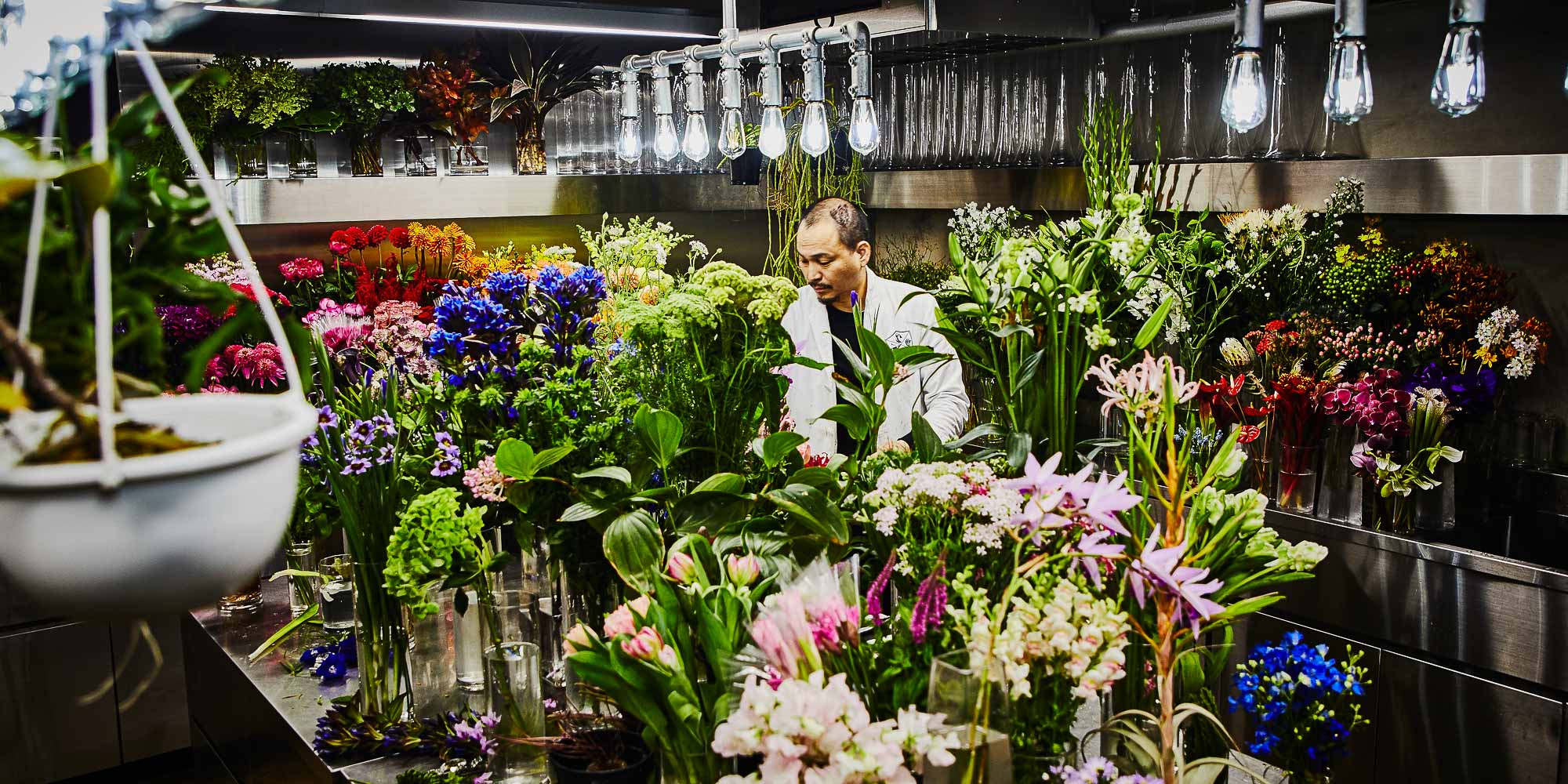
Makoto Azuma is no traditional florist. Born in Fukuoka Prefecture, Japan, Azuma is a flower artist whose unique botanical sculptures have been featured everywhere from the catwalks of runway shows to the cold vacuum of space (you may recall an artist who launched a bonsai into space some years ago — that was Azuma). His approach to what has been described as “living art” emphasizes the transiency of things all around us, with flowers being the perfect medium to showcase the fleeting nature of time.
For his latest work, Azuma has partnered with Grand Seiko on a project titled “Art of Time,” a lush botanical sculpture that captures the essence of Grand Seiko’s Japan Seasons Collection. The creation of this piece has been chronicled below.
The following interview has been translated from Japanese and edited for length and clarity.
Tell us about your thinking behind this project with Grand Seiko?
I turned to the idea that time passes us by, changing from moment to moment. I created this artwork thinking that it was my role to show the ever-changing appearance of flowers over time, and to make people feel that time through this expression.
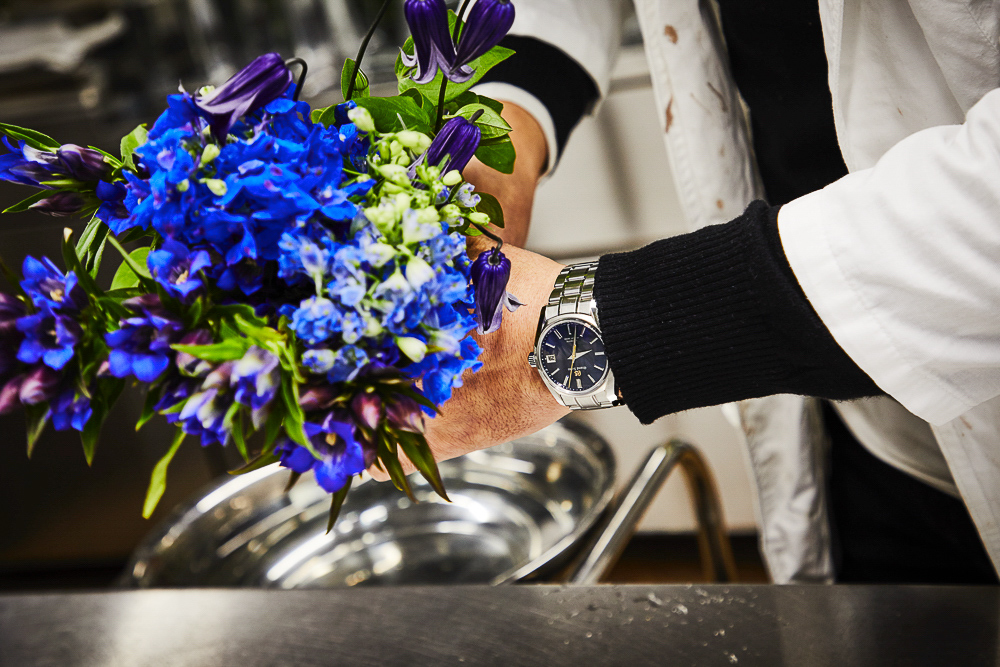
How do you draw similarities between flowers and watches, and what emotions come to mind?
Every expression of a flower — from when they are buds, to when they bloom, to when they wilt — is beautiful, and each moment is dramatic. I believe there is similarity between the flow of a time, which keeps changing, and the beauty of each moment that flowers create when they change. It made me realize that a flower expresses the “Art of Time.”
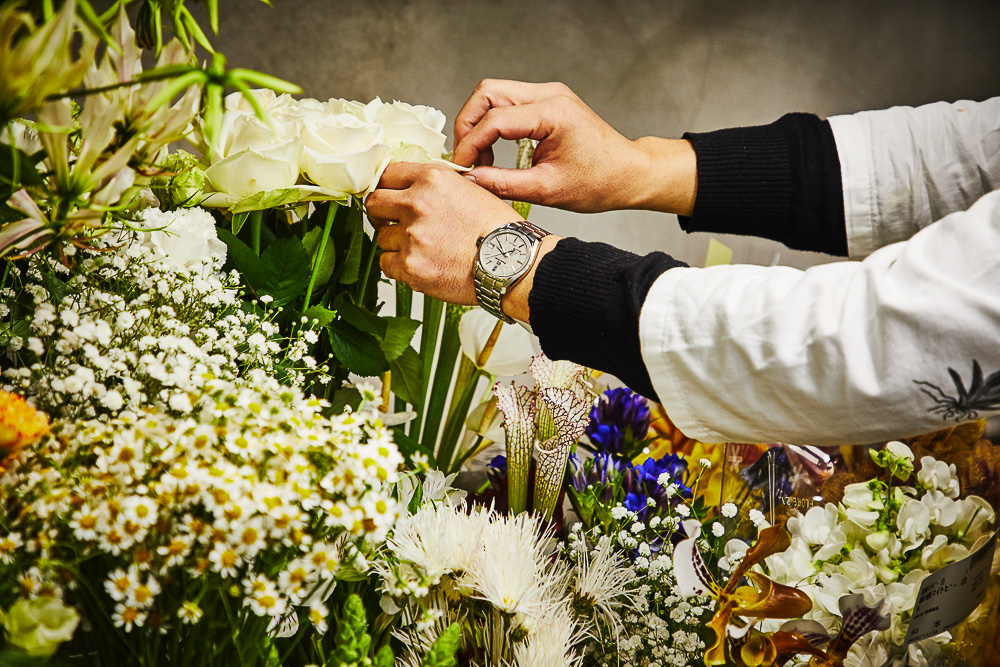
How did you choose the flowers that represent the Japan Seasons Special Edition watches?
I selected flowers that would best conjure up the scenery of the four seasons expressed in the watches. I chose mainly from Japanese varieties. Some of them are traditional Japanese flowers, and others are modernized hybrid flowers. That is why this artwork feels like a fusion of tradition and innovation. Also, Japanese flowers are very delicate, graceful, and refined, and I thought those characteristics connected well with the Japan Seasons watches.
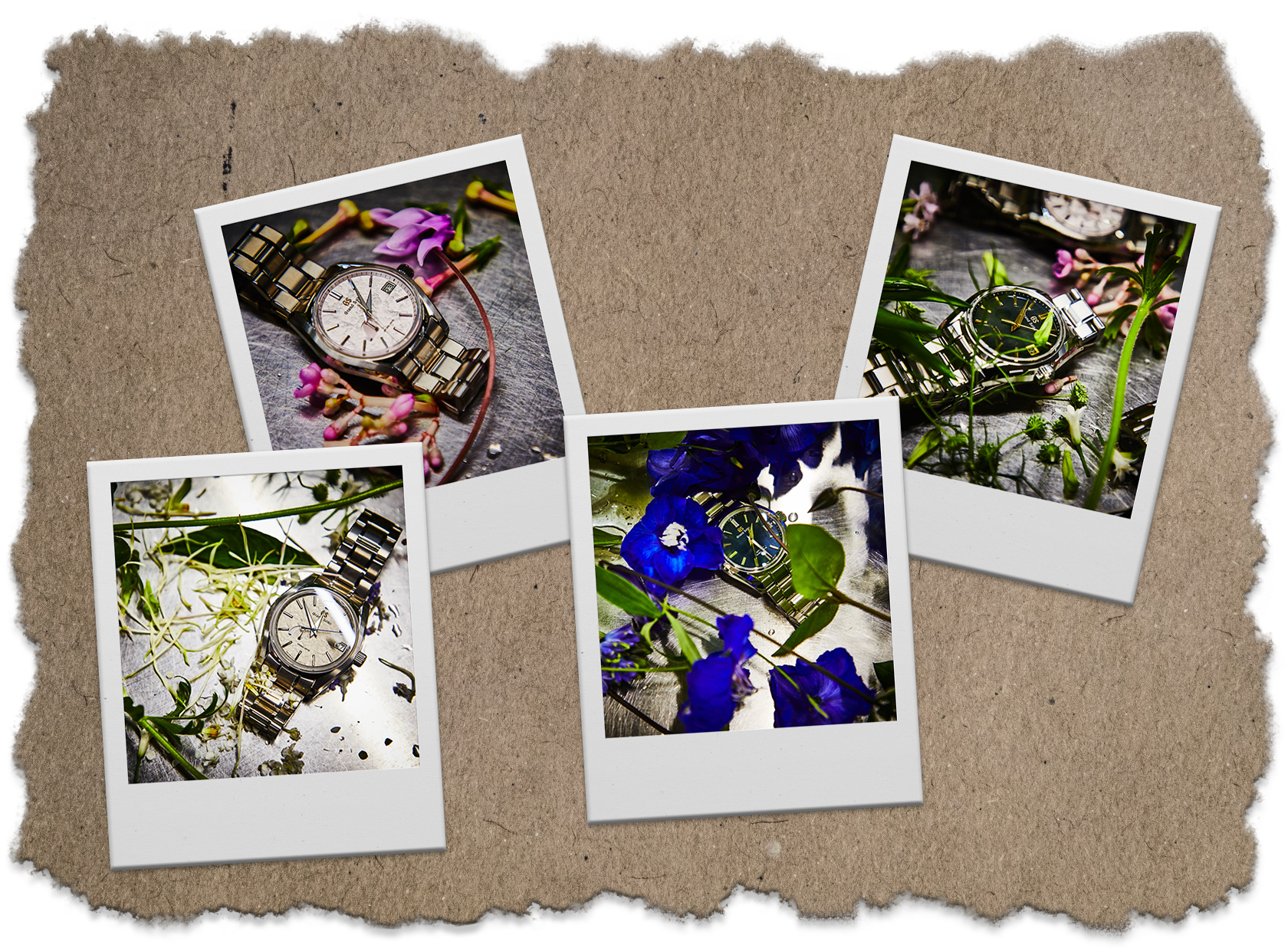
When people view the installation, what do you hope they think and feel?
I would like people to see and connect with the transformation of the flowers over time. They come into bloom from buds, then they blossom in full glory, and finally they decay fleetingly, and it shows us that a flower is an expression of a short life. Just like a human, all moments of a flower’s life are filled with beauty, and I would be pleased if people feel all aspects of a flower’s life, from the moments that are sorrowful to those that are strong and full of vitality.
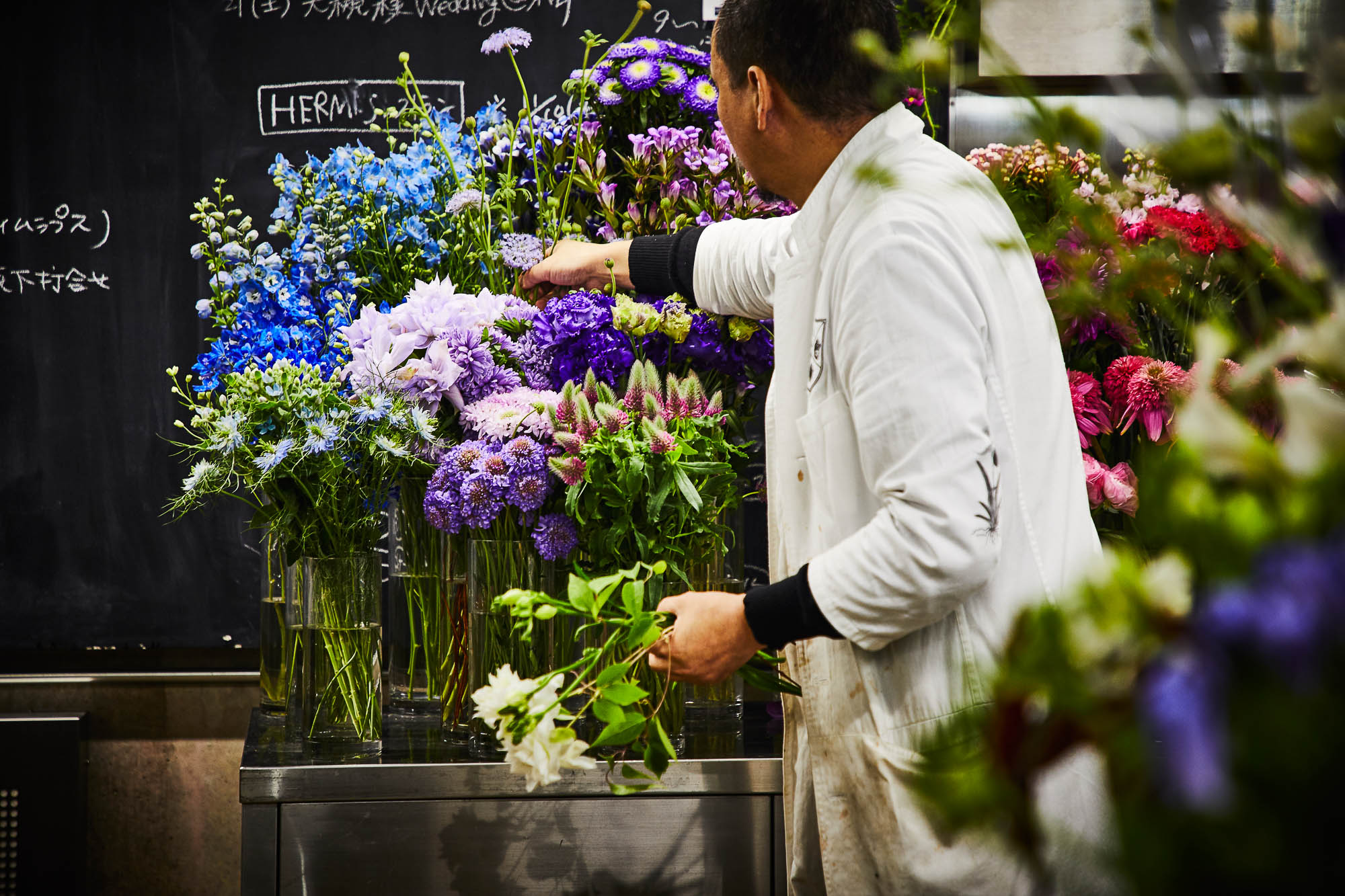
Can you speak specifically to the way you conceived the transition from spring to summer and fall to winter in your work?
As for the transition from Spring to Summer, beautiful flowers are in bloom, petals are gradually falling , and glowing greens are sprouting. My approach was to express the dynamic nature of the flowers after they bloom. Regarding the transition from Fall to Winter, I imaged the scenery of an Autumn moonlit night casting a glow on the flowers, and those moonlit flowers gradually getting covered by silently falling snow.
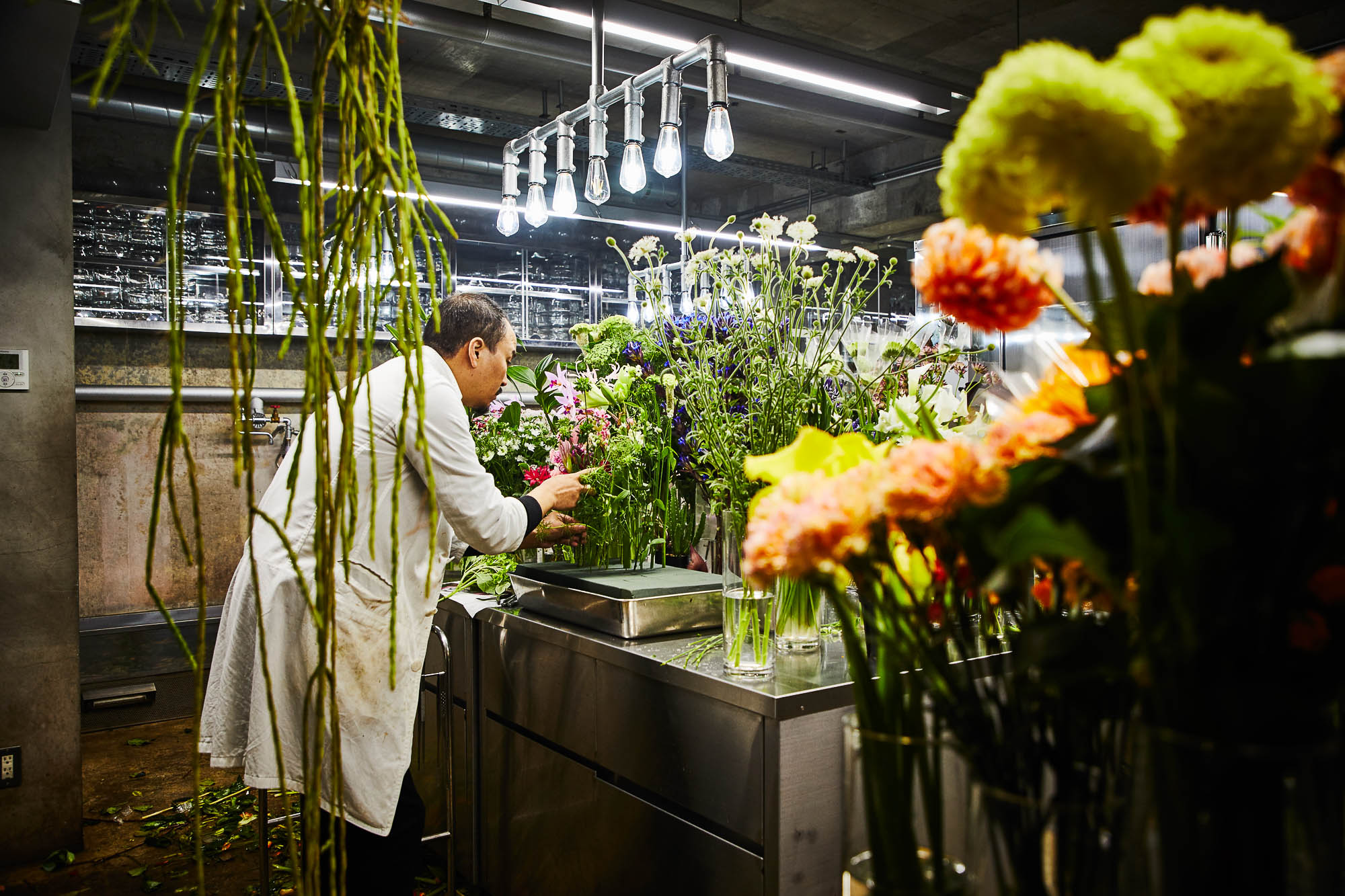
Being from Japan and living in Japan, can you put into words what the seasons mean in your culture, and why they are significant?
Being Japanese, there is great respect for nature and living with it, so the changes that happen with the seasons — that natural lapse of time that you can see — feel very natural to me. In fact, I think that I could say that without the four seasons, the scenery of Japan would be very different.
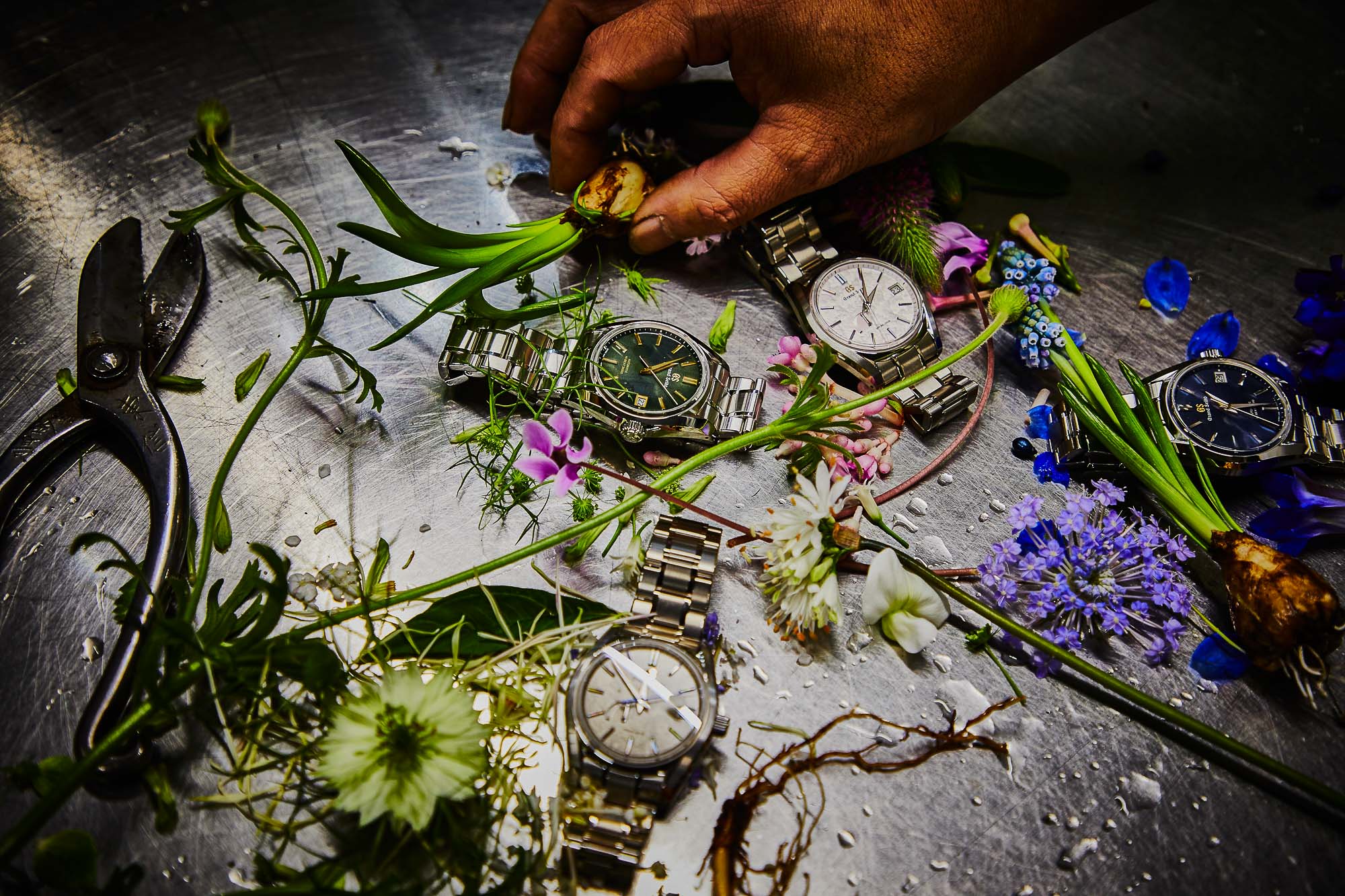
Is there anything else you experienced during this work that you’d like to tell us about?
There are affinities between the worlds of a watch and a flower, and this was my first time mixing the two. Furthermore, as I mentioned, the Japanese have a unique sensibility when it comes to the four seasons and the country’s distinct scenery, so by visualizing such scenery with flowers, I believe that I created art that can convey the Japan Seasons Special Edition’s view of the world to even more people. Because of technology and the digitization of the world nowadays, marking the passage of time, which is a watch’s true nature, and feeling those moments is a very indulgent and important thing to experience.

